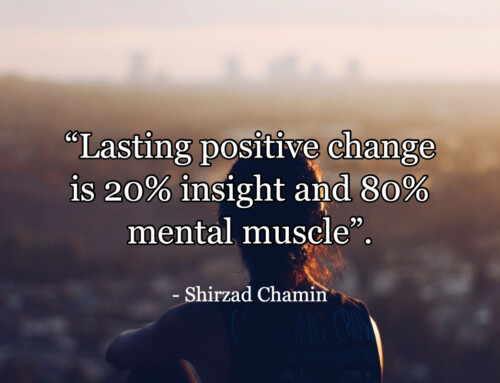Many are anxious and fearful as they watch the news today. Stories of bombings, mass murders, as well as the moral, economic, and spiritual decline of the United States. Of course, this should be disturbing as it reveals the hardships and heartaches many live with each day.
However, as a Christian we can have an alternative perspective. You see, God is at work, even in the chaos and is building His kingdom. The direction of our society should not shake the foundation of our life because our life is built on a rock that will never be shaken. This is why Christians throughout the centuries, and those who are persecuted today, can live a life of joy, purpose and significance.
But how can we go about doing that? Learning more about God and the Bible can help, but in many cases Christians who attend church, even casually, know a lot of information about God. They just haven’t integrated their head knowledge into everyday life. “I know God is sovereign, but so what? How does this make a difference in how I live my life day by day?”
If you have followed so far I believe you will be truly helped by a process that will help you answer this question. A process that leads from an Institutional faith to an Individual faith.
Institutional Faith We all come ‘into the faith’ with a unique history formed by our upbringing, the culture, societal and church traditions. An institutional faith is one that comes from the religious group we grew up with, which may include parents, or the group we joined after accepting Jesus Christ as our Savior. It is how we start our spiritual journey and relationship with Christ. This faith is often mixed with denominational and cultural preferences of the group that we join after our conversion experience. It can include family or church standards for how to live the Christian life. Think through the typical spiritual experience of a new Christian. They come to know Christ as their Savior through a life transforming process which the Bible calls being ‘born again’. They meet a real Savior and start a real relationship with Him.
Next, they begin to attend church, Bible study, Sunday School, small group or whatever the method the church they attend uses to promote Christian fellowship and impart knowledge about God, the Bible and how to walk the Christian life. Part of this church experience and spiritual teaching includes denominational distinctions, church traditions (this is ‘how we do things here’) and cultural adaptations of Christianity. Think of how church services look based on the ethnicity of the majority group or Pastor, the geographic location of the church, etc. This isn’t to say there is something wrong with this discipleship model type of education and learning. It is needed, especially for the new believer. The weakness with this is that this is where most Christian faith grows to and stops.
Religious truth begins with imparting information but it must move beyond this. There must be a process put into place that allows truth to be lived, of being in relation to God and others.
“Instead of doctrine, creeds or traditions being the repository of truth themselves, they become a guide or channel through which faith is practiced and owned.”
Although this intentional process can occur through different approaches, one that I’ve found works well is the process found in “The Seven Most Important Questions You Will Ever Answer” by Daniel Henderson.
The next several newsletters will explore this process while answering some key questions. The first question that is so relevant for today is, “Who is God?” To show how answering this question makes a difference, listen to the testimony from a father and husband who was across the street from one of the bombs when it exploded at the Boston marathon.
“Just wanted to get a quick note to you to let you know that
Going over some of my “God statements” this afternoon was amazingly helpful. Having the lists of God’s attributes and the “consequences” of them for my life has increased my resolve to live with abandon, trusting Him for whatever may come.
I’ve never felt more vulnerable than in the moments after the bomb exploded. Yet almost instantly, there was a peace that our lives were safe and firmly in the hands of God. His choice determines how long we live here, not a bomber or anyone else. This was deeply encouraging and enabled me to move our family out of the building we had gathered in after the bombing.”
Wow! What an amazing story of having a grounded faith even in such chaos. So what about you? You’ve heard God is Sovereign, Good, All Powerful, Faithful, etc. But how does that make a difference in your life today?
For the next month, try this exercise. Pick one of God’s attributes and fill in the blank:
“How is God’s _________ making a difference in my life today? How have I experienced this today? How can this inform my prayer life? My mindset as I walk through the day?”
Continue to add other attributes of God to the list and create your own God Statements or Personal Theology. Review this each day and see what a difference it makes on how you view the daily headlines and circumstances of your life.
I’d love to hear from you. Please share a comment or email me and share how you are experiencing God in your life today. If you would like to learn about a coaching group that delves into answering questions like, Who Is God?, Who Am I?, What Does He Want Me to Do? email me for more information and indicate “Coaching Group”.





